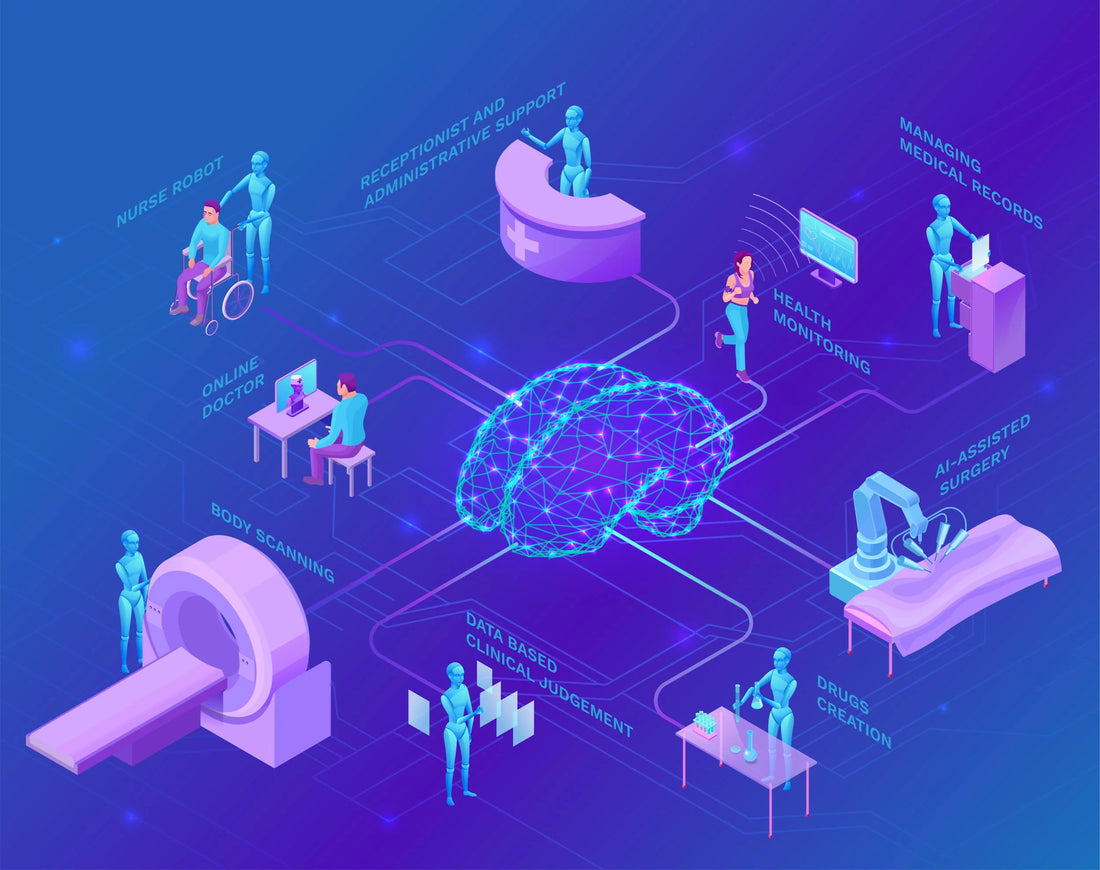In the ever-evolving landscape of healthcare, one technological force has been making waves and reshaping the industry as we know it – Artificial Intelligence (AI). This powerful tool is not just a futuristic concept but a present-day reality, with the potential to revolutionize diagnostics, treatment, and patient care. In this blog, we'll explore the various ways AI is making its mark in the medical industry and the profound impact it's having on healthcare professionals and patients alike.
-
Enhanced Diagnostics:
AI algorithms are proving to be invaluable in medical diagnostics. From image recognition to pattern analysis, AI systems can process vast amounts of data with unparalleled speed and accuracy. Radiology, pathology, and dermatology are just a few areas where AI is enhancing diagnostic capabilities, aiding healthcare professionals in more precise and early disease detection.
-
Predictive Analytics and Personalized Medicine:
The ability of AI to analyze large datasets allows for the identification of patterns and trends that might go unnoticed by human observers. This capability is leveraged in predictive analytics, where AI helps forecast patient outcomes, detect potential health risks, and tailor treatment plans for individual patients. The era of personalized medicine is dawning, with AI playing a central role in delivering targeted and effective therapies.
-
Robotics and Surgical Precision:
Surgical procedures are becoming more precise and minimally invasive, thanks to the integration of AI-powered robotic systems. Surgeons can benefit from real-time data analysis, enhanced visualization, and improved control during complex surgeries. This not only reduces the risk of complications but also accelerates patient recovery times.
-
Virtual Health Assistants:
Virtual health assistants and chatbots driven by AI are transforming the patient experience. From appointment scheduling to medication reminders, these intelligent systems are enhancing communication between healthcare providers and patients, streamlining administrative tasks, and ensuring better adherence to treatment plans.
-
Drug Discovery and Development:
The traditional drug discovery process is known for its lengthy timelines and high costs. AI is changing the game by expediting the identification of potential drug candidates, predicting their efficacy, and optimizing clinical trial designs. This acceleration could lead to the faster development of innovative treatments and therapies.
-
Data Security and Privacy:
As healthcare becomes increasingly digitized, ensuring the security and privacy of patient data is paramount. AI-driven solutions are being employed to strengthen cybersecurity measures, detect anomalies, and safeguard sensitive medical information from unauthorized access.
The integration of Artificial Intelligence into the medical industry is not a distant vision—it's a reality reshaping healthcare delivery today. From diagnostic precision to personalized treatment plans, AI is driving unprecedented advancements, offering the promise of improved patient outcomes and more efficient healthcare systems. As we navigate this era of technological innovation, the synergy between human expertise and artificial intelligence holds the key to a healthier and more connected future in the world of medicine.
